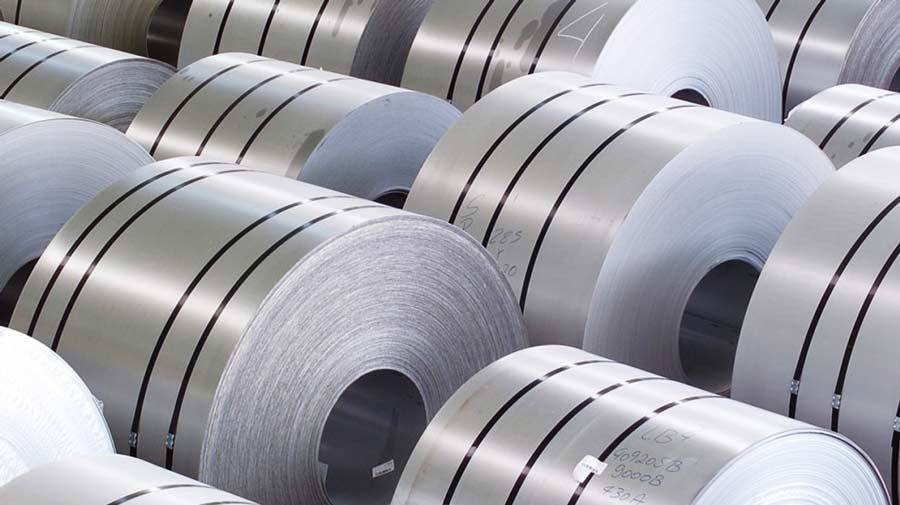
Year starts well for Brazil’s steel; imports and U.S. concern
Mar, 17, 2025 Posted by Sylvia SchandertWeek 202512
The year 2025 began on a favorable note for Brazil’s steel industry, primarily buoyed by an increase in domestic consumption, a recurring trend during this period. However, new uncertainties loom. Besides the rise in imports, which now account for 25% of the domestic demand for steel products, the intensified tariff war initiated by the Trump administration threatens export prospects and could result in a greater redirection of the Asian surplus towards Brazil.
The hybrid quota and tariff system introduced in June by the Brazilian government to curb the “invasion” of imported steel, mainly from China, and to protect local steelmakers, has not yielded the expected results. It will only be in effect until May, creating a wary, apprehensive atmosphere for the second half of the year—when projections for the Gross Domestic Product (GDP) indicate a slowdown in the domestic economy.
Currently, domestic demand is showing signs of recovery, driven by the construction and automotive sectors, which have initiated a rebound after a period of stagnation. This may provide some relief to steelmakers, as the fourth quarter—typically weaker for steel sales—was marked by pressured margins, except for Companhia Siderúrgica Nacional (CSN).
Daniel Sasson, an analyst at Itaú BBA, notes a slightly better dynamic flat rolled steel, as producers have managed to implement price increases at the start of the year, and contract renegotiations with the automotive sector concluded with adjustments in the range of 2% to 3%, which should improve margins in the first and potentially the second quarter.
“In the second half, the level of visibility is lower due to expectations of weaker GDP and economic slowdown compared to earlier this year,” he pointed out. “Caution is the best word regarding volumes and the possibility of price increases [in the second half of the year].”
The U.S.’ decision to impose a 25% tariff on imported steel could lead to an 11.27% drop in Brazilian exports of ferrous metals, equating to a loss of $1.5 billion in 2025, according to projections from the Applied Economic Research Institute (IPEA).
The U.S. steel sector, despite being the fourth largest in the world, has a deficit in slab supply to independent rolling mills. The Instituto Aço Brasil believes that the country’s challenge now is to prove Brazilian steel plays an important role in the U.S. Industry by supplying the slabs missing in the local market.
With a 40.76% loss on the B3 stock exchange in 2024, according to Valor Data, CSN surprised with robust fourth-quarter results, and the market acknowledged that the results exceeded expectations due to stronger operational performance across all business units. In 2025, up to March 14, the company’s shares have risen by 10.53%. On the other hand, the company continues to face pressure from high debt levels, with cash burn due to financial expenses and investments to diversify its business.
Meanwhile, Gerdau shares fell 4.58% in 2024 and continue on a downward trend in 2025. However, the company is already seeing signs of improvement in its U.S. operations following President Donald Trump’s decree imposing 25% tariffs on imported steel and aluminum. With 30% idle capacity in the U.S., the Brazilian steelmaker sees room to increase production without the need for new investments.
Conversely, Gerdau could be caught off guard by Trump’s taxation on products from Canada and Mexico, where it has operations. CEO Gustavo Werneck told analysts and investors that the company is now reviewing plans following studies to establish a new plant in Mexico. A final decision is expected by July. In the same vein, Mr. Werneck mentioned that if the Brazilian government does not implement new protection measures, the company might reconsider future investments in the country.
The impact of the U.S. “tariff storm” will be heavier for ArcelorMittal, which produces and exports steel slabs from Brazil to the U.S. The company stated in a note that it considers it too early to assess the decision’s impacts, as a similar measure was announced in 2018 and adjusted to a hard quota regime following negotiations with the Brazilian government.
Usiminas shares dropped by 50.09% in 2024, mainly due to pressure on steel prices, rising imports, and the devaluation of the real against the dollar, which reduced profit margins.
According to analysts interviewed by Valor, Chinese steel imports are more alarming than U.S. tariffs. With the absence of anti-dumping measures and the end of the quota system in May, the sector fears a greater Asian product influx. CSN’s Executive Director Luis Fernando Martinez remarked that Brazil acts as the “backyard of the world” for China’s steel industry to send its products, harming the sector’s competitiveness.
The Brazilian government acknowledges the impact of imports on the domestic industry but has yet to indicate whether it will tighten rules or adopt anti-dumping tariffs, in investigation processes already requested by local steelmakers. Filipe Bonaldo, Managing Partner at A&M Infra, stresses the urgency of measures to protect the steel sector. He expresses concern about the next two years, as companies tend to cut costs and delay investments while assessing the effects of newly forming trade barriers.
Source: Valor International
-
Ports and Terminals
Mar, 10, 2022
0
Portos do Paraná sets public hearing date for new lease area
-
Ports and Terminals
Aug, 18, 2022
0
Port of Santos auction: gov’t drawn to allowing terminals to bid in consortiums
-
DW 2020 EN
Jun, 15, 2020
0
DATAMARWEEK 16 JUNE 2020
-
Grains
Jan, 01, 2021
0
No soybean exports scheduled until March due to delay in harvest

